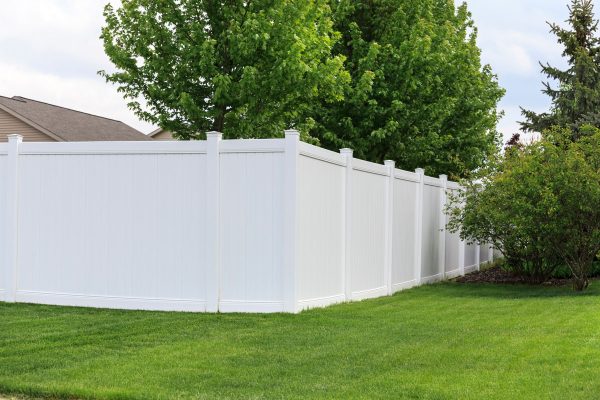As a pet owner, one of your major priorities is the safety and security of your dogs. So, it is essential to know what type of fencing you should use for them. Well, do you think vinyl fences are good for them? We'll tell you the answer to that in this post since we have asked some experts regarding this matter.
Indeed, the vinyl fence types are suitable for dogs. And that is because they are easy to maintain, durable, versatile, and can handle your dogs safely and securely.
We highly suggest you keep reading to know more about why vinyl fences are good for your dogs. There are many things that you should know about vinyl fences before you purchase one for your dogs. It is important to know its benefits and drawbacks to help you plan. And without further ado, please read on!
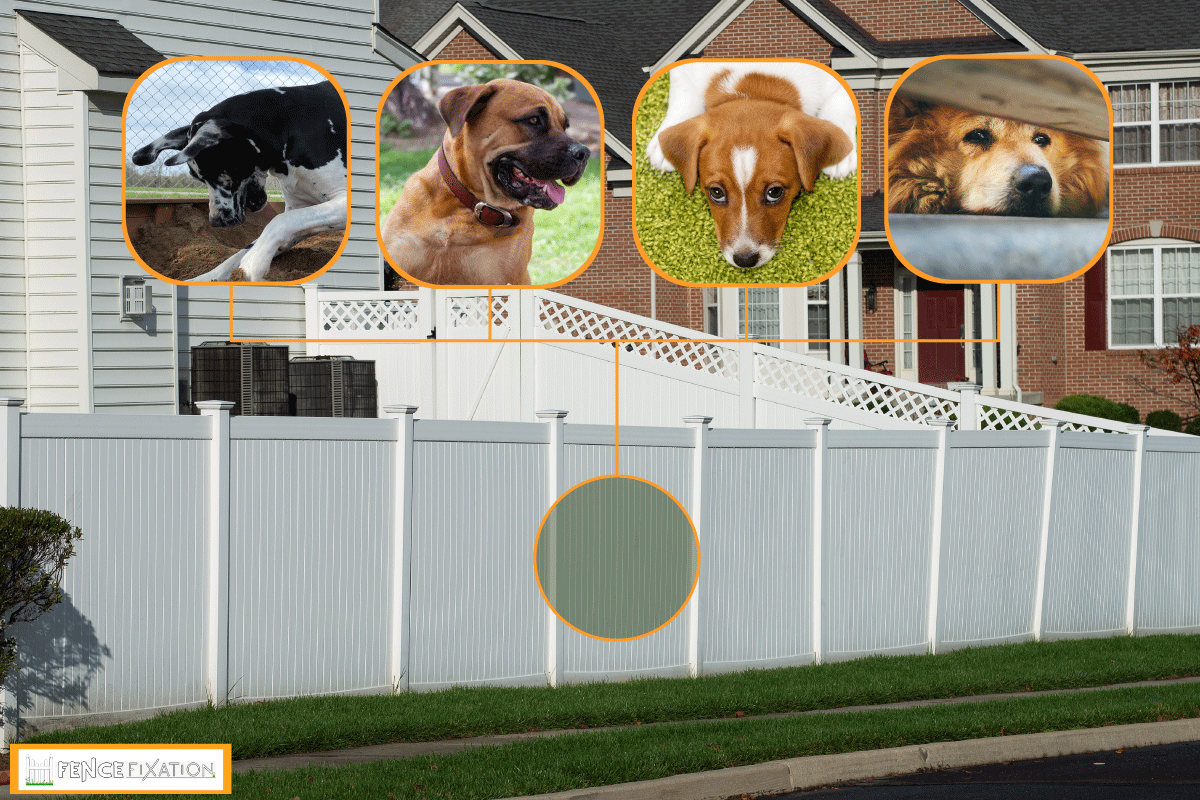
Are Vinyl Fences Good Enough For Dogs?
Dogs can give us love, happiness, and comfort. However, we can not avoid them being destructive with things, especially with our fences when they're outdoors. So, before installing vinyl fences in your yard, it would be best to get to know the material better.
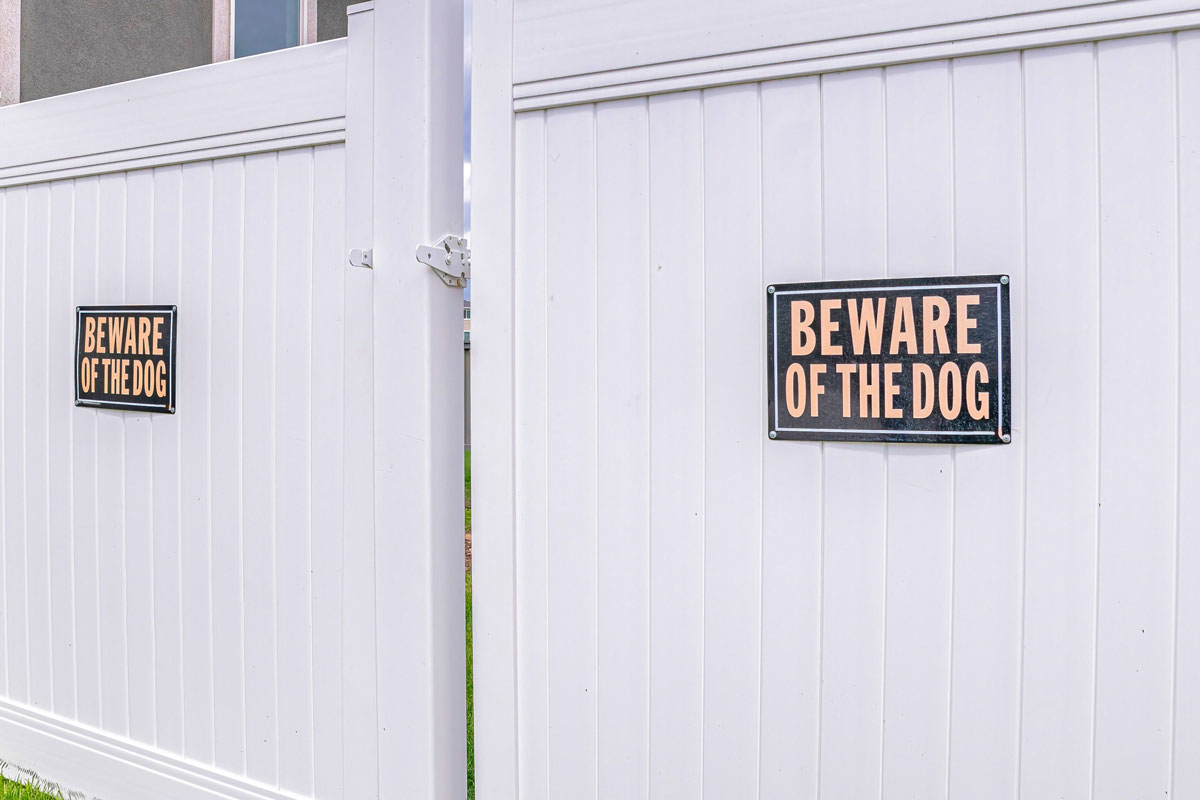
Vinyl Fence Pros
Below are the benefits of vinyl fences for your lovely dogs:
1. Vinyl Fences Can Withstand Dog Scratches
It is inevitable for dogs to scratch the fences, especially when they try to peak between the pickets, chase those squirrels, or when they try to escape from your yard. If you have ever experienced having wood fences and your dogs destroyed them, you may be worried that it would happen again with vinyl.
Thankfully, vinyl is a durable material. And that means it can hold up against your pets, whether a dog or a cat. It can also hold up against balls and weed eaters, so you don't have to worry too much. Another good thing about vinyl fences is that they are invulnerable to termites or pest damage.
2. Vinyl Fences Can Limit Visibility
A solid vinyl privacy fence is just one of the styles a vinyl fence has. And this type of fence is undoubtedly beneficial to dog owners. Vinyl privacy fences can limit the visibility in the inner or outer area of your yard, unlike picket and chain link fences that are see-through.
Vinyl privacy fences can prevent your dogs from distractions made by wild animals, squirrels, people walking, and many others. Also, it will keep the passersby from disturbing your dogs. You don't have to be concerned about kids or neighbors feeding your dogs or sticking their hands through the fence.
3. You Can Plant Shrubs Along Vinyl Fences
It is an excellent factor that you can plant shrubs along your vinyl fence. If your dogs love to dig at the base of your fence, planting shrubs would be a good idea. Doing such a thing will prevent your dogs from digging.
In addition, even if you plant directly under your vinyl fences, they will not rust or rot, unlike wood or metal fences.
4. Vinyl Fences Don't Need Painting Or Staining
A vinyl fence does not only save you time by not requiring staining or painting. It also helps ensure the safety of your dogs. Dogs have a bad habit of munching and licking on things they shouldn't.
Your dog might experience harmful effects or illness if they lick the fences you have treated with a waterproofing or stain solution. And since you don't need to treat vinyl fences, your dogs are safe from them.
5. Vinyl Fences Don't Contain Sharp Parts
A chain-link type of fence is unassailable for dogs, especially when they are new. However, they can produce sharp borders when they become rusty.
Likewise, when a wooden fence becomes damaged, it might expose sharp nails or screws. On the other hand, vinyl fencing includes no sharp pieces, so you won't have to be concerned about harming your dog. It's a safe option for even the most active dogs who might run into it.
6. You Can Choose A Fence Height And Features That Are Right For Your Dogs
You can modify vinyl fences according to the needs of your dogs. If your dog can jump over a six-foot fence easily, then you can have a topper that raises the height of the vinyl fence. Additionally, you can also purchase taller vinyl fences, depending on your general requirements.
7. Can Provide Safety From Fire And Splinters
The reason why you plan to install a fence is for safety measures. However, fences can also be dangerous for pets and children. But that will depend on the fence material you will use.
Wood fences splinter over time, and if you have dogs and children who like to play against them, you may find yourself pulling out splinters one by one. In addition to splinters, wood fences can easily acquire fire. Vinyl fencing is far more fire-resistant than wood fencing.
Further, a vinyl fence can also transform your open-air backyard into a private area.
Vinyl Fence Cons
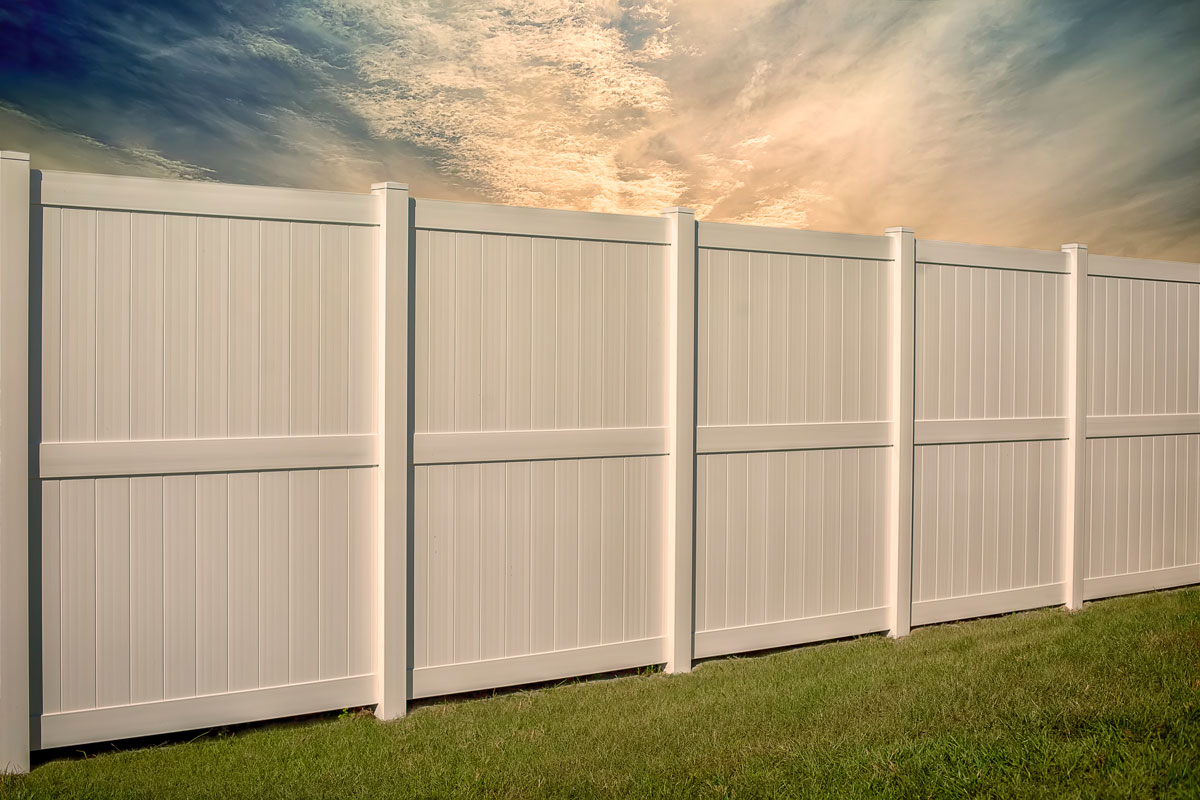
Check the drawbacks of vinyl fences below and contemplate if the pros can outweigh them.
1. Vinyl Fences Are Vulnerable To Temperature Changes
Vinyl fences are indeed resistant to moisture. However, they are not weather-proof. If there are temperature changes, your vinyl fence won't naturally contract and expand.
So, to clarify, your vinyl fence can easily obtain cracks when the temperature is extremely cold and may warp when the temperature is extremely hot. Additionally, when a vinyl fence warps, it can be unrepairable.
A vinyl fence gets brittle when it's cold, and your dogs can quickly damage brittle fencing when they scratch or exert force on it.
However, you can still avoid all of these things as long as you had the installation correctly and if you have used high-quality vinyl materials.
2. Dogs Can Damage Vinyl Fences
Like people, dogs also have extreme curiosity. And they mostly explore anything that catches their attention. And you can consider this a problem when your dog gets close to your vinyl fence. They can damage the vinyl fence, especially when they jump or chew on it.
In addition, they also defecate or urinate on the vinyl fence. And those two can cause discoloration and might break down your vinyl fencing.
So, it would be best to train your dogs not to get too close to your vinyl fence.
How To Keep Dogs From Digging Under Any Fence?
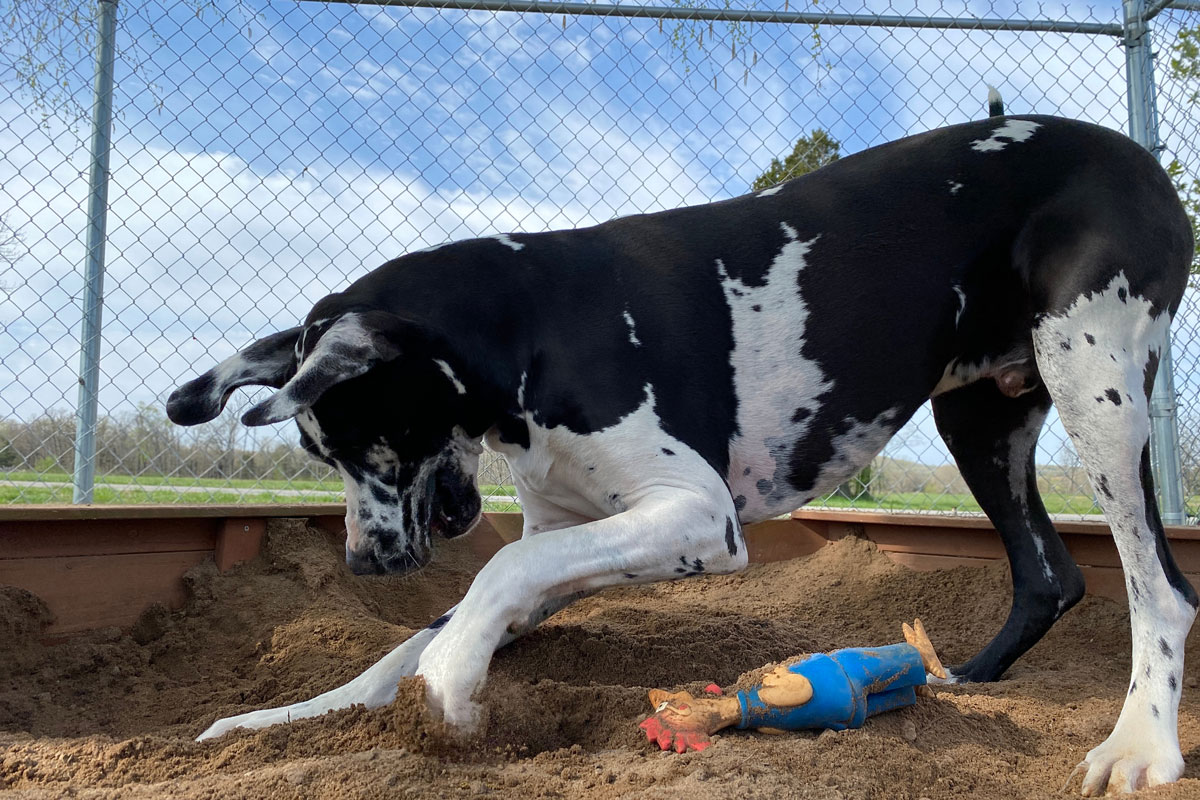
If you are getting annoyed by your dogs because they keep digging and ruining the area under your fences, it would be best to take steps to prevent that. Aside from planting shrubs, you can still choose from a few options, such as:
- Place chicken wire along the bottom and tuck in any sharp edges.
- Place large rocks at the base of the fence line and ensure you bury them partially.
- To keep your dog from digging around the border, install a chain-link fence and anchor it to the footing of the fence.
- Consider getting an L-footer. Wire fencing will deter your dog from approaching the fence, especially if you incorporate odorous deterrents such as pepper or pepper spray.
How Much Do Vinyl Fences Cost?
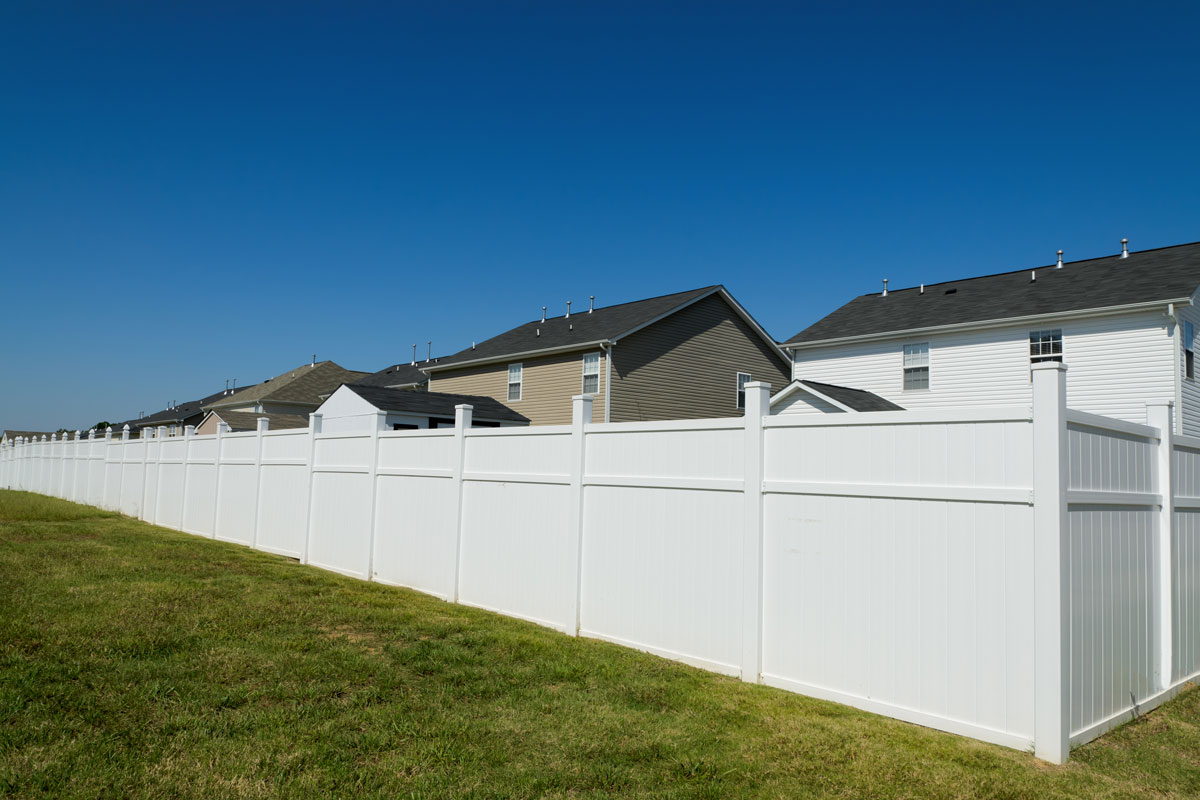
In the United States, the average cost of a vinyl fence differs depending on its height, size, and current material costs. Costs of labor will vary as well.
Fence post caps, lattice effects, texturing, and gates are all options that will increase the cost. Furthermore, the cost is impacted by the thickness of the material. Inexpensive vinyl fences are typically thin and easily dented or damaged.
For a more sturdy fence that demands less maintenance over time, it's usually worth investing in a thicker vinyl material. Choose a simple design over a lower-quality material if you want to save cash.
Wrap It All Up
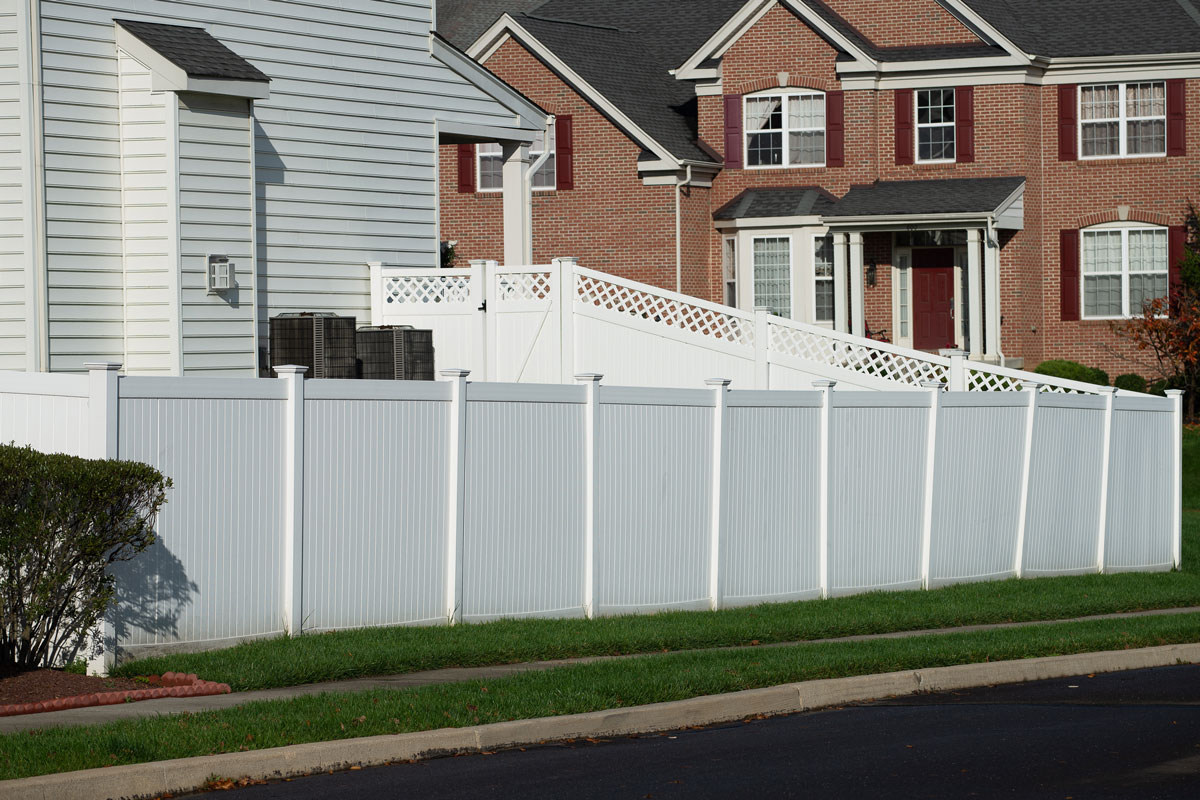
Installing a vinyl fence in your yard for your dogs is an excellent idea. Using vinyl as your fencing material can keep them secure and safe.
We hope you find this post helpful. If you have more questions, just leave a comment below, and we'd love to answer you! And if you want to read further, you can freely visit our website and choose some articles that might interest you, or you can check these posts out:
5 Types Of Fence Post Caps [How To Choose For Your Type Fence]
How Far Apart Should Chain Link Fence Posts Be?
Should Fence Posts Be Pressure Treated? [And How To Prevent Rotting]

![A modern middle class home with its backyard being enclosed for privacy by a new, modern style white vinyl fence. Green grass, and blue sky is in the background., Can Vinyl Fencing Withstand Wind? [Plus 7 Windproofing Tips!]](https://fencefixation.com/wp-content/uploads/2022/06/A-modern-middle-class-home-with-its-backyard-being-enclosed-for-privacy-by-a-new-modern-style-white-vinyl-fence.-Green-grass-and-blue-sky-is-in-the-background-600x400.jpg)
![A white vinyl fence running across a yard on spring day with blue sky and trees in the background, Can Vinyl Fence Touch The Ground? [Plus Tips On How To Close The Gap]](https://fencefixation.com/wp-content/uploads/2022/06/A-white-vinyl-fence-running-across-a-yard-on-spring-day-with-blue-sky-and-trees-in-the-background-600x400.jpg)
